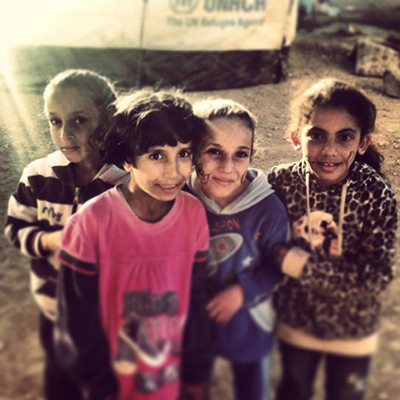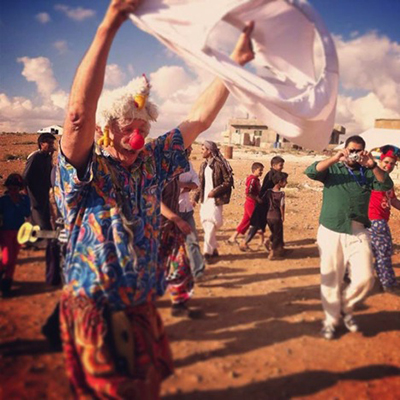 Medical school can be really consuming; it drains your mind, energy and to some point, your spirit. The nature of the training we go through was designed to prepare us to be the best doctor, which requires us to stay on top of our game and never cloud our judgement by anything unnecessary. Often, without realising, we tend to build a wall around us, ensuring we do not get too attached to our patient. Most of medical students these days care more about impressing their superiors, getting good grades in the exam and graduating with honors more than the well-being of their patients. Along the way, despite being truly enthusiastic medical students in our earlier days, we tend to forget why we wanted to become doctors. We forgot about treating patient as a whole, we only care about the diagnosis and the treatment, the fancier the name, the better.
Medical school can be really consuming; it drains your mind, energy and to some point, your spirit. The nature of the training we go through was designed to prepare us to be the best doctor, which requires us to stay on top of our game and never cloud our judgement by anything unnecessary. Often, without realising, we tend to build a wall around us, ensuring we do not get too attached to our patient. Most of medical students these days care more about impressing their superiors, getting good grades in the exam and graduating with honors more than the well-being of their patients. Along the way, despite being truly enthusiastic medical students in our earlier days, we tend to forget why we wanted to become doctors. We forgot about treating patient as a whole, we only care about the diagnosis and the treatment, the fancier the name, the better.
I was blessed earlier last fall as I get to follow Patch Adams and twenty other clowns from the Gesundheit! Institute, which is an institute clowning for the refugees in Jordan. Patch Adams – as he introduced himself the day we first met, is a clown who also happens to be a doctor and a social change activist. He leads 5-7 clown trips per year, taking groups of people to war-torn countries and the poorest of regions to bring humour and laughter to the underprivileged.
We started our journey in a place called Zarqa where we clowned for the Palestinian refugees in a small stadium. I finally witnessed the power of the red nose. This allowed us to break the barrier we have with people around us. Once you put it on, you can reach out beyond what you can with your white coat and stethoscope. Kids would come towards you instead of running away. They want you to notice them instead of hiding behind their mommies, being scared of you – well, of course there was one or two who were afraid of clowns in the crowd, but we got that covered too!
Our second stop for the day was in Irbid. A group of Syrian kids were brought to an activity centre and we clowned for them. I was touched by this little girl, who drew the Syrian flag and tried to tell us that she misses home during the drawing session. During meal time, I saw a group of kids who did not want to eat and ‘plotted’ to hide their food. I figured that the food distributed that evening would be considered a ‘luxury’ in the camps. I wondered how were their living conditions in the camps, having to sleep in the tents, surviving daily with limited food and necessities.
The coming days were filled with visits to refugee camps, hospitals and housing areas where the refugees are located. I did not get to join them, but I kept myself updated with their encounters throughout the week. It may be different places and people, but the story remains the same; the sufferings of the refugees and the smiles we see on their faces as we approached and reached out to them. These refugees are not only deprived of their living necessities, but also deprived of love, happiness, laughter and hope; which is just what the clowns brought.
 No one knows when the crisis in Syria will come to an end. Some might have given up and lost hope of being able to go back to their homes and to once again enjoy the luxury of proper education and healthcare. The same thing goes for kids who were severely ill in the hospitals and for their families, not knowing what life has to offer for them in the future. So it is our job to restore that hope in their hearts. We wanted to remind them not to lose hope and also to remind ourselves of how little things we do could mean so much to others in need.
No one knows when the crisis in Syria will come to an end. Some might have given up and lost hope of being able to go back to their homes and to once again enjoy the luxury of proper education and healthcare. The same thing goes for kids who were severely ill in the hospitals and for their families, not knowing what life has to offer for them in the future. So it is our job to restore that hope in their hearts. We wanted to remind them not to lose hope and also to remind ourselves of how little things we do could mean so much to others in need.
You will not be dealing with refugees that much unless you live in a crisis zone or join some humanitarian mission to the camps but I believe that the refugees and the patients share so much similarities, one of which is the suffering. After the clowning trip, I noticed I am a changed person. The outlook I have towards my people around me have changed. I recalled Patch sharing his interest of clowning for the adults – the ones with the worst injury, the ones who suffered the most – on our first day. Since then, I realised that adults are the ones who needed the clowns the most. I am not saying that we should all put on a red nose and do a slapstick comedy act, but all of us need is to smile just a little bit more, to listen more attentively and most importantly, to remind our patients to not lose hope in life, no matter how bad the situation is.
As I see sick children in the paediatric department making new friends, playing with each other joyfully, it became apparent to me that the mothers are the one who are suffering the most. Knowing that their children are sick and not being able to do much about it, at the same time worrying about the kids they had to leave at home. Some even got scolded by the doctors for asking questions that seems to be unnecessary. It is the mothers’ nature, to want the best for their kids. Being overworked might be a valid reason for why doctors are not able to spend more time with patients and even smiling would be a dreadful, energy-consuming task at some point. But as I watched these clowns being very patient with misbehaving kids – and adults too! – and that smile does not wear off until their job is over, I told myself that I wanted to be that kind of doctor, who smiles politely every time a patient is around and I know it is not an easy task, yet I will try my best.
I also learnt about the power of a hug in this clowning trip. I have never had so much warm and loving hugs in two-days as much as I had in this trip. It was so recharging, it made me feel good, and I bet it made the person I hugged felt good too. This makes sense because hug releases the “happy hormones” which melts away pain and sadness. I tried to give as many hugs as I could after the trip to the people around me, though it always started awkwardly because most people are more used to the pretentious hugs and air kiss, but it felt great afterwards. Throughout my clinical years I have had a few patients who wanted to hug and kiss – it’s quite a common practice in the middle east – and I always felt awkward when that happened, but not anymore. Still, I will not initiate a hug to the patient because I do not want to invade their personal space, but if ever a patient wants to hug me after this, I will definitely do it happily.
 You can learn so much from clowns. They are the most humble people in the planet. Some of these clowns have a Master’s degree and are PhD holders, doctors, journalists and authors, who make a fool out of themselves to make others smile and laugh. They do not care if people think they look stupid because of the way they dress or the comic act they do, all that matters to them is that people around them are happy. They are nowhere near being judgmental and neither do they have bad assumptions about people.
You can learn so much from clowns. They are the most humble people in the planet. Some of these clowns have a Master’s degree and are PhD holders, doctors, journalists and authors, who make a fool out of themselves to make others smile and laugh. They do not care if people think they look stupid because of the way they dress or the comic act they do, all that matters to them is that people around them are happy. They are nowhere near being judgmental and neither do they have bad assumptions about people.
The night falls and I bid my farewell to this old man whose hair, were half-dyed in blue and his amazing clown tribe who inspired me so much. I went home that night wondering what else I could do to make the world a better place, with so little that I could possibly give. I started writing and sharing my stories with people in hope to inspire them as well. “One step at a time,” I said to myself. I smile a lot more to my patients, try to listen more to what they have to say, and giving more hugs to people around me. I constantly remind myself to give the best that I can and to always make the best of the moment.
Despite my love and passion in the medical field, I found myself asking questions of why I am doing it from time to time. I discovered my answer in this trip and if you are asking yourself the same question as well after years of being in medical school, exhausted and worn out; I hope you will find your answers too one day.
This article is written by Nurul Atiqah, a 6th year student in Jordan University of Science and Technology. Click the Young Columnists tab under The Team to know about her.
Photo credit by Jesse Alexander Myerson Ahmad Al-Khatib.
